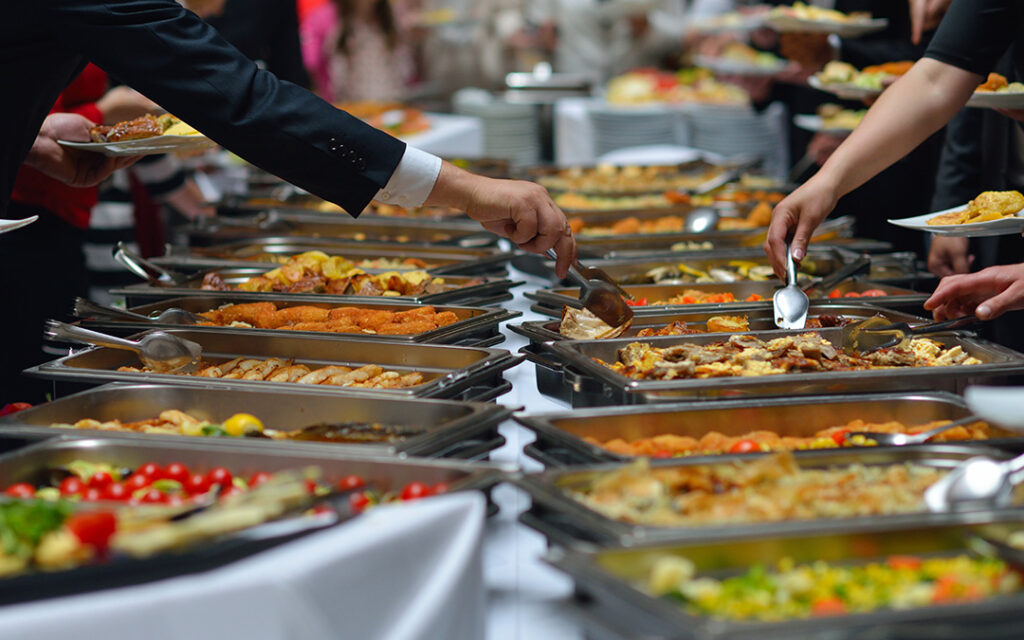Pay in 3: Enjoy interest-free payments
on purchases from £30 - £2,000 with PayPal!
on purchases from £30 - £2,000 with PayPal!
Menu

Ghanaian funeral services are deeply rooted in tradition, with customs that celebrate the life of the departed. One integral aspect of these ceremonies is funeral catering, where the rich Ghanaian cuisine takes center stage. This article explores the significance of Ghanaian funeral catering services and the customs associated with these gatherings.
In Ghana, funerals are viewed as a communal affair, bringing together family, friends, and the wider community to mourn and commemorate the departed. Funeral catering is an essential element of these gatherings, symbolizing unity and shared support during times of grief.
Funeral catering services in Ghana are specialized, offering a range of traditional dishes that reflect the country’s diverse culinary heritage. Caterers are skilled in preparing meals that cater to the preferences of the bereaved family and the attendees, ensuring a blend of cultural authenticity and personalization.
Jollof Rice: A staple in Ghanaian cuisine, Jollof rice is a flavorful and colorful dish made with rice, tomatoes, onions, and a blend of spices. It symbolizes the vibrancy of life and is often served at funeral gatherings.
Fufu and Light Soup: Fufu, a dough-like mixture of cassava and plantains, is paired with light soup made from fish or meat. This dish holds cultural significance and is commonly served during funeral ceremonies.
Waakye: A dish made from rice and sorghum leaves, Waakye is known for its distinct reddish-brown color. It is a popular choice for funeral catering, representing the diversity of Ghanaian culinary traditions.
Kelewele: Spicy fried plantains, known as Kelewele, add a flavorful and aromatic touch to funeral menus. This dish is a favorite among Ghanaians and is often enjoyed during social gatherings.
The choice of dishes in funeral catering is not arbitrary; each item holds symbolic meaning. For example, Jollof rice is a symbol of the circle of life, while Fufu and Light Soup signify the strength and interconnectedness of the community. The careful selection of these dishes reflects the desire to honor the departed and provide comfort to the mourning attendees.
Ghanaian funeral catering extends beyond providing nourishment; it serves as a tangible expression of community support. Friends and neighbors often contribute to the catering efforts, reinforcing the sense of solidarity and shared responsibility during times of grief.
In Ghana, funeral catering goes beyond the culinary realm; it is a cultural expression of unity, support, and respect for the departed. The careful selection of traditional dishes and the communal effort involved in catering underscore the importance of coming together to celebrate life, even in the face of loss. As Ghanaians navigate the delicate balance between mourning and remembrance, funeral catering stands as a testament to the heart of Ghanaian fare.
Nritwaa Catering | All Rights Reserved © 2020 | Company Number: 13047485